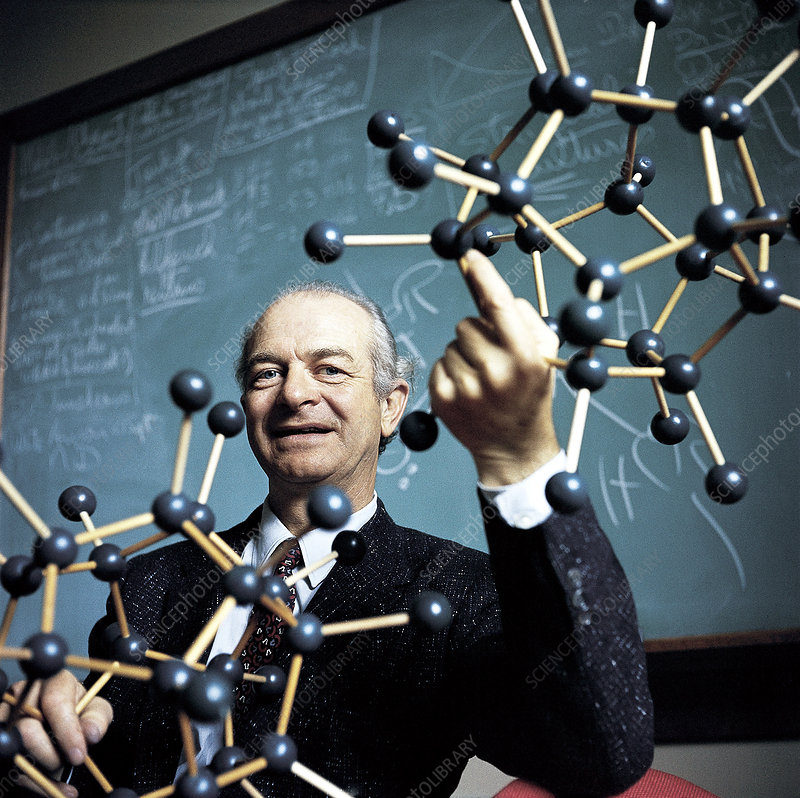Linus Pauling, a legendary scientist, two-time Nobel laureate, and a pioneer in various fields of science, dedicated a significant portion of his life to the study of vitamin C and its potential to enhance human health and longevity. His groundbreaking research paved the way for a broader understanding of the benefits of vitamin C, particularly when encapsulated in liposomes. In this article, we explore Pauling’s thoughts on liposomal vitamin C and its implications for disease prevention, improved human performance, and longevity.
Linus Pauling: A Visionary Scientist
Linus Pauling, born in 1901, is often celebrated for his revolutionary contributions to the fields of chemistry and biochemistry. He was awarded the Nobel Prize in Chemistry in 1954 for his groundbreaking work on the nature of the chemical bond. In 1962, he received the Nobel Peace Prize for his advocacy against nuclear weapons testing, making him one of the few individuals to have received two unshared Nobel Prizes.
Pauling’s interest in vitamin C began in the 1960s when he became intrigued by its potential health benefits. He believed that vitamin C, in large doses, could serve as an important factor in promoting overall health and longevity. His work culminated in the concept of liposomal vitamin C, which offered a new and more efficient way to deliver vitamin C to the body.
Liposomal Vitamin C: A Game-Changer
Liposomal vitamin C is a novel approach to vitamin C supplementation. Liposomes are tiny, spherical vesicles made of lipids that can encapsulate and protect the vitamin C molecule. This technology allows for better absorption of vitamin C in the body, as it can pass through cell membranes more effectively.
Pauling believed that liposomal vitamin C could be a game-changer in disease prevention and longevity. His research suggested that high doses of vitamin C, delivered through liposomes, could potentially:
- Boost the Immune System: Pauling advocated that high-dose vitamin C could strengthen the immune system, making the body more resilient to infections and diseases. The liposomal delivery method ensured that vitamin C reached immune cells more efficiently.
- Combat Chronic Diseases: Linus Pauling theorized that liposomal vitamin C might help in the prevention and treatment of chronic diseases, such as cancer and cardiovascular conditions. He argued that the antioxidant properties of vitamin C could neutralize free radicals, which contribute to disease progression.
- Enhance Human Performance: Pauling believed that liposomal vitamin C could lead to better physical and cognitive performance. By reducing oxidative stress and enhancing energy production, vitamin C could potentially contribute to improved athletic performance and mental acuity.
- Promote Longevity: Pauling’s work on vitamin C was closely linked to his interest in extending human lifespan. He argued that liposomal vitamin C, by reducing the effects of aging and the risk of disease, could contribute to a longer, healthier life.
Controversy and Legacy
Linus Pauling’s advocacy for high-dose vitamin C, particularly through liposomal delivery, was met with both admiration and skepticism within the scientific community. Critics argued that the evidence supporting his claims was inconclusive, and some questioned the safety of high-dose vitamin C supplementation.
Despite the controversy, Pauling’s legacy endures. His pioneering work on vitamin C and liposomal delivery methods has continued to inspire researchers and clinicians to explore the potential health benefits of these approaches. Modern science has made significant strides in understanding the role of vitamin C in health and longevity, and ongoing research continues to explore its applications.
Conclusion
Linus Pauling’s dedication to advancing our understanding of vitamin C, particularly through the innovative approach of liposomal delivery, reflects his lifelong commitment to human health and longevity. While his theories and research have faced both acclaim and skepticism, they have undoubtedly left a lasting impact on the fields of nutrition, health, and longevity. The potential of liposomal vitamin C to enhance disease prevention, human performance, and longevity remains an area of ongoing scientific exploration, as we continue to uncover the secrets of this remarkable molecule.
